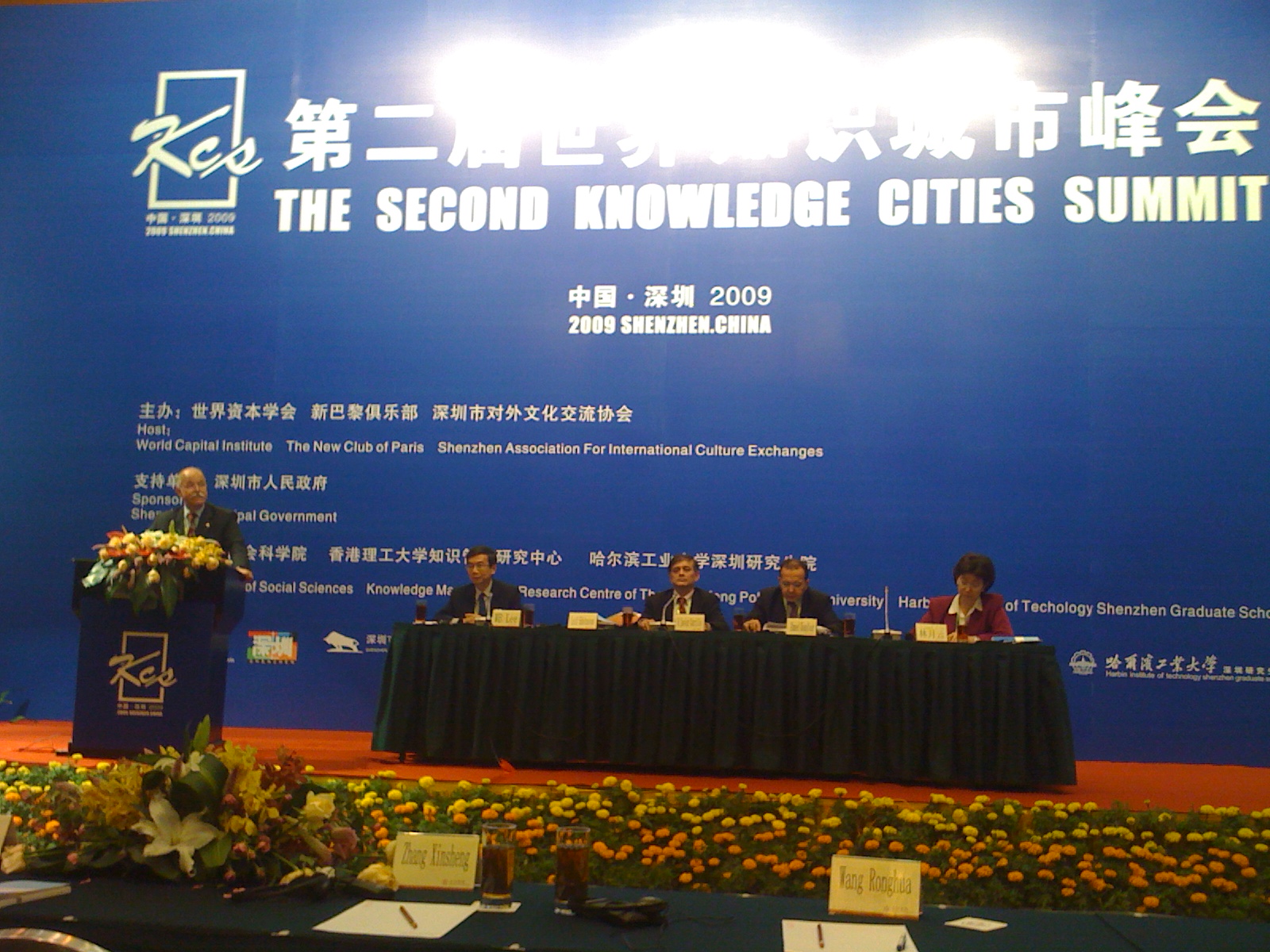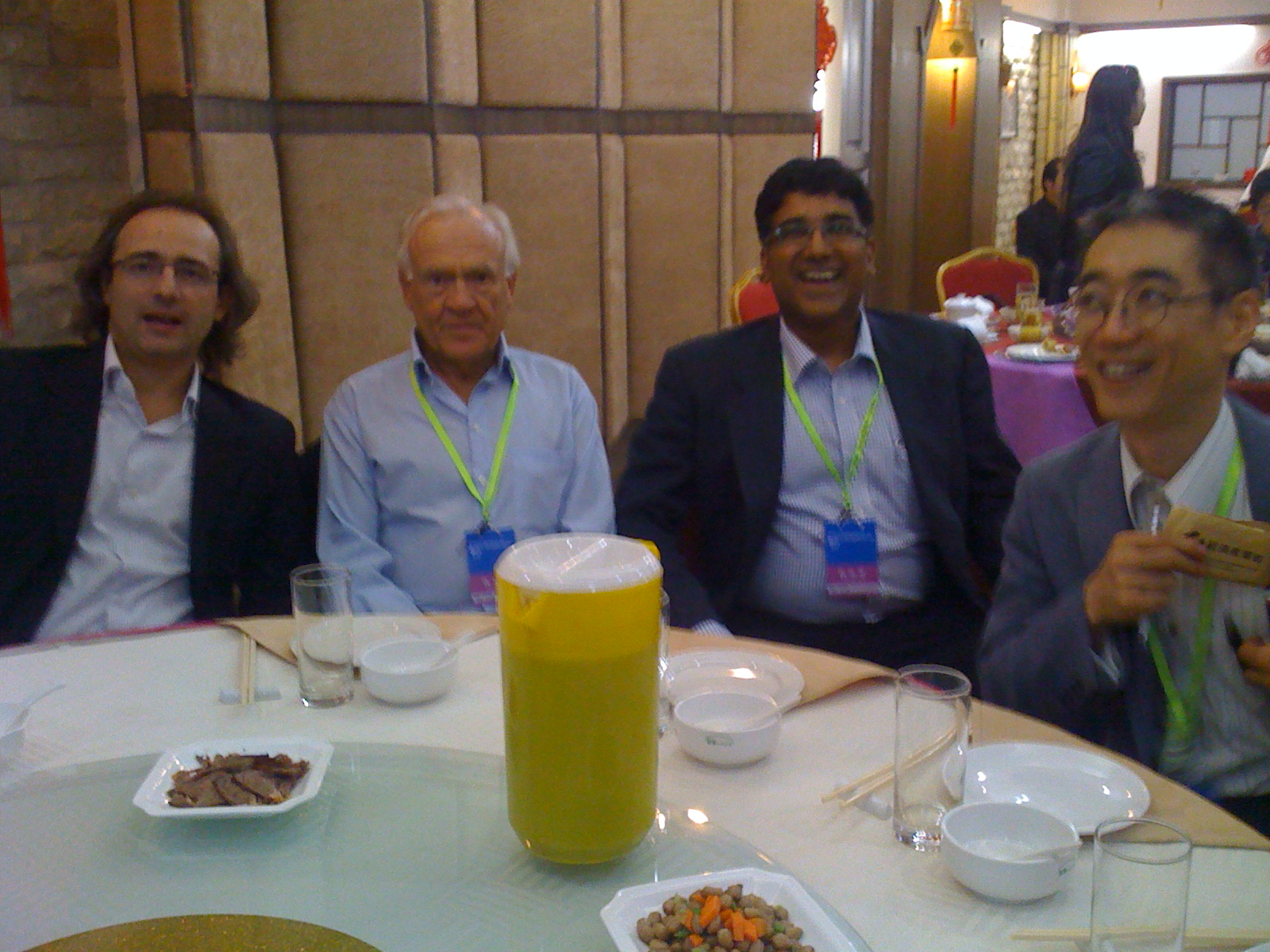Dr Ravi Sharma was in Shenzhen, China, recently for The Second Knowledge Cities Summit. He presented his paper on “Learning Communities in a Flat World: An analysis of the People’s Republic of China“, co-written with Wang Sheng-Chieh, Chen Yufang and Sammie Chen Qing from the MSc Information Studies programme.

At the Conference
In this paper, they presented a framework for developing a learning and benchmarking modality of analysis. The 4-pillar framework (Sharma et al 2008) they used suggests that infrastructure, governance, culture and talent operationalise a learning community with some 10 key dimensions which help discern success or failure. Using public and external sources of validated data to obtain proxy indicators for the 10 dimensions, they studied the development of 7 communities across China which span the development spectrum. The possible emergence of China as an advanced knowledge economy poses some very interesting development opportunities for other nations. The paper examined the central research question of whether (and how) it is possible to “flatten” the divides between advanced and less developed regions of a vast and populous country using knowledge policy as a tool.
In particular, they considered whether developing learning communities is an effective means of bridging knowledge gaps and the differences in growth and development. This is founded on the notion of a flat world – one which can be transformed into a level playing field.

Shenzhen Skyline

With Karl Wiig at the banquet

Co-authors. From left: Chen Yufang, Wang Sheng-Chieh, Sammie Chen Qing
the 10 key dimensions of the 4-pillar framework that was used in the paper?Visit “Tel U”